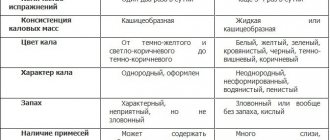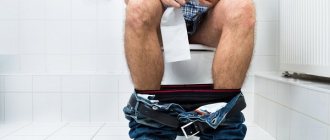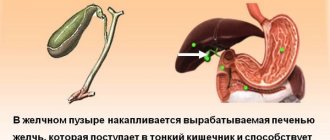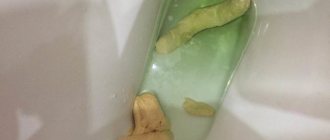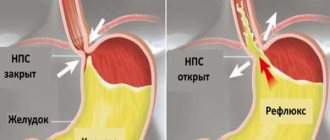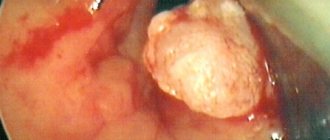Diet
As you know, even ordinary foods can stimulate intestinal motility, have an astringent effect, and help consolidate stool. Some, on the contrary, make the situation worse. On the first day of the onset of diarrhea, they drink strong black tea, a decoction of bird cherry, and eat white bread crackers for food. In the following days, add oatmeal, rice porridge with water, then boiled meat and vegetables.
Eating for diarrhea means that food should be bland without spices. Raw vegetables are not recommended for consumption. It is necessary to identify the cause of the bowel disorder. If it consists of indigestion of protein (celiac, lactose enteropathy), then following a diet excluding foods containing proteins is the main factor in the successful treatment of diarrhea at home.
Antidiarrheal remedy for diarrhea
Such medications significantly reduce intestinal activity. They are produced on the basis of loperamide, an active substance that effectively fights loose stools. The active component eliminates the symptoms of diarrhea, it affects the intestinal receptors, relaxes its smooth muscles and stops peristalsis (the movement of food). Loperamide and its analogues are often used for secretory diarrhea, Crohn's disease, oncological intestinal pathologies, and intestinal candidiasis. You are allowed to drink no more than 1-2 capsules per day. Known medicines:
- Loperamide is available in capsules, tablets, syrup and solution. The medicine helps reduce intestinal motility and normalize the tone of the rectum. Children from 2 to 5 years old are given syrup three times a day, 1 mg/10 kg. From 5 years - 2 mg, adults - 4 mg. Take until recovery.
- Imodium capsules contain loperamide. The drug selectively blocks opioid receptors in the intestinal walls, which reduces peristalsis and fecal incontinence during diarrhea. The required amount of the drug is determined by the doctor. Average dosage: adult patients - 2 capsules several times a day, children - 1 capsule 3 times per day.
- Enterobene coated tablets are intended for the symptomatic treatment of diarrhea. The active substance is loperamide hydrochloride. A child over 8 years old can take 1 tablet up to 4 times a day (the frequency depends on the degree of diarrhea). Adults take 2 tablets (maximum 8 pieces).
| Name | Price |
| Superilop | 50-80 |
| Loperamide | 50-70 |
| Ersefuril | 220-280 |
| Imodium | 250-350 |
| Diara | 50-100 |
| Indomethacin | 30-70 |
Loss of fluid: how to replenish?
Losses from diarrhea are enormous - up to several liters per day. Along with water, microelements are also washed out of the body; in case of severe diarrhea, water is replaced with decoctions or pharmaceutical solutions - citroglucosolan, rehydron. You can make your own infusion: take 1 liter of water, half a teaspoon of soda, 1 tsp. salt, a glass of orange juice, 4 tablespoons of sugar. What should an adult drink if he or she has diarrhea?
Sorbents include:
- Activated carbon, it is taken at the rate of 1 tablet per 10 kg of patient weight.
- White clay.
- Calcium carbonate.
- “Venter”, “De-Nol” (bismuth salts) are not absorbed in the intestines and contribute to the compaction of feces.
- "Smecta". Instructions for use for diarrhea should be studied. It is dissolved in water. The drug is taken up to 5 times a day.
- “Polyphepan”, “Bilignin”, a tablespoon is shaken in a glass of water, they do not dissolve, because they are wood derivatives.
- “Attapulgite”, it can be used only for 24 hours, it is in tablet form, you can take 15 tablets per day.
- Cholestyramine is used only if there are problems with the gallbladder, because It is a resin that binds bile acids. Diarrhea in this case is called hologenic.
Sorbents are designed to absorb and remove toxins, viruses, and gases. You should not abuse them if you are allergic to proteins or any other products; in this case, it will be enough to refuse these products.
I bind everything to sorbents - both food and medications, so you should take breaks between taking other medications. What else should you drink if you have diarrhea?
Causes and symptoms of diarrhea
Diarrhea is a protective characteristic reaction to the ingestion of bacteria, viruses and other types of harmful microflora. The human body tries to get rid of foreign microbes by detoxifying itself. The symptom is classified as:
- acute - lasts less than 14 days, caused by poisoning or intestinal infection;
- chronic - duration is more than 2 weeks, often triggered by diseases of the gastrointestinal tract (gastrointestinal tract).
There are many factors that can lead to diarrhea in an adult or child. The main causes of diarrhea are:
- infectious (food toxins, dysentery bacillus, intestinal viruses);
- dyspeptic (improper digestion of food, insufficient gastric secretion, malfunction of the digestive glands);
- toxic (intoxication with poisons, poisoning with mercury, arsenic);
- nutritional (food allergies);
- neurogenic (fear, extreme anxiety, stress);
- medicinal (side effects from taking medications).
To recognize a problem, you need to be aware of its obvious signs. Symptoms:
- loose, watery or pasty stools;
- stool foams and has a foul odor;
- the color of the discharge is green, yellow or white;
- attacks of nausea, vomiting;
- feeling of weakness, lethargy, general malaise;
- stool 3 or more times a day;
- increase in body temperature from 37.5 to 41 degrees;
- cutting or nagging pain, spasms in the lower abdomen;
- stool is difficult to hold or cannot be controlled at all;
- increased gas formation, bloating;
- the excrement contains blood, mucus, and parts of undigested food.
Drugs that improve intestinal motility
Loperamide is the most effective remedy for acute diarrhea. In this case, you should believe the advertising, because there is no better drug in terms of effectiveness. Prescribed for irritable bowel syndrome, Crohn's disease. Prohibited use only in cases of infectious diseases. Loperamide binds feces in the intestines and, along with it, can leave toxins and bacteria in the body, which, accordingly, can aggravate the disease. For intestinal amyloidosis and diabetic diarrhea, this drug is also not effective. Nutrition for diarrhea plays a very important role.
The hormone somatostatin and the drug based on it - Octreotide. During its action, intestinal motor function slows down, but absorption increases. The drug is indispensable for enteropathies.
“Platifillin”, “Atropine” also reduce intestinal motility; for acute pain in the intestines, no-shpu and papaverine are prescribed. Here you need to be careful and take these drugs only in the first days of the disease.
What to drink with probiotics for diarrhea?
Possible causes of diarrhea in children
Diarrhea in a child is usually caused by:
- Viruses – rotavirus, sapovirus, noravirus. The peak of infection occurs in the autumn-winter period.
- Bacteria – Escherichia coli, Campylobacter, Shigella, Vibrio cholerae, Salmonella. Their time is spring and summer.
- Parasitic protozoa and worms, rare.
There are 3 types of diarrhea:
- Invasive - caused by bacteria, occurs with intestinal inflammation. Medicines to treat diarrhea for children with invasive diarrhea include sorbents and antibacterial drugs.
- The secretory type occurs with an increase in the secretion of water and electrolytes - mineral salts - by the intestinal cells. There is no inflammation, the cause of the condition is enterotoxins from cholera pathogens and other bacteria. They take sorbents and probiotics; it is necessary to replenish lost fluid.
- Osmotic – caused by viruses. In the intestines, the absorption of water and salts and the breakdown of sugars are impaired. The child is prescribed enzymes, antivirals, sorbents, probiotics and rehydration agents as a cure for diarrhea.
Diarrhea is possible with dysbacteriosis. This happens after a course of antibiotics, when beneficial intestinal bacteria die along with pathogens. Other reasons include: stress, nutritional disorders, lack of enzymes.
Probiotics
Each person has their own unique microflora in the intestines, which ensures digestion. With diarrhea, it always suffers or decreases so much that it ceases to function properly. Therefore, first of all, restorative drugs are needed, such as “Enterol”, “Baktisubtil”, they contain transient microflora.
Don’t forget about medicines containing intestinal microorganisms, as well as beneficial bacteria, such as Hilak Forte.
In some cases, it is necessary to completely restore the intestinal microflora, then it is necessary to use drugs with obligate intestinal flora - “Bifidumbacterin”, “Linex”. According to the instructions for use, “Smecta” for diarrhea goes well with these medications.
In most cases, diarrhea goes away on its own without special treatment or a trip to the doctor. But in any case, it is better to use any of the methods of restoring intestinal microflora, regardless of the cause of diarrhea.
You should also monitor your condition, as harmless symptoms may indicate more serious diseases, including colon cancer. You should pay attention to blood in the stool, weight loss, black stools, and frequently recurring diarrhea lasting more than 3 days. In these cases, you need to see a doctor and undergo a full examination in order to exclude all possible concomitant diseases or begin to treat existing ones in a timely manner.
Here's what to drink if you have diarrhea as an adult.
Antibiotics
According to statistics, in approximately 40% of cases, acute diarrhea in children in the first 5 years of life is caused by rotavirus infection, in 30% by other viruses1. Only 20% of diarrhea is bacterial in nature1. The remaining 10% includes stool disorders accompanying extraintestinal infections, for example, ARVI, food poisoning, diseases of the abdominal organs, as well as those caused by side effects of medications and other reasons1.
The doctor makes a decision on the need for antibacterial therapy based on the clinical picture and after microbiological analysis - determining the causative agent of diarrhea and its sensitivity to drugs. Antibiotics in the form of tablets for children with diarrhea are indicated only in the case of a bacterial nature of the diarrhea syndrome2. If the disease is viral in nature, they are ineffective; the main emphasis in treatment is on rehydration and enterosorbents2.
Dill water
Carminative. It is drunk for severe colic in the intestines. Therefore, it is often recommended for newborns. Dill water also has an antispasmodic effect. Once the water reaches the intestines, the spasm is relieved and gases pass out without problems.
You can use both dill seeds and fennel seeds. 1 teaspoon of seeds is poured into 300 ml of boiling water, the water boils for several minutes, then the stove is turned off and the solution is allowed to brew for 45 minutes. After which the seeds are thrown away and the infusion is drunk if necessary.
What should a child drink if he has diarrhea?
Rehydration products
Diarrhea causes severe dehydration, removing fluid (stool is 90% water) and electrolytes from the body. To quickly restore water and electrolyte balance, it is necessary to give the patient rehydration medications. Oral medications are available in powder form. The contents of one sachet are diluted with a glass of boiled water and consumed throughout the day. When severe diarrhea develops due to exacerbation of infection, polyionic crystalloid solutions are administered intravenously. The most popular medications in this group:
- Regidron is a powder for the preparation of an oral solution. Available in 20 bags per package, it has a sweet and salty taste. Restores the acid-base balance during diarrhea due to glucose. The contents of the package are diluted with water, and the resulting solution is drunk throughout the day. Duration of therapy is about 4 days.
- Orsol is a granular salt mixture with a high potassium content. For acute diarrhea, the solution is taken in small sips until the symptoms disappear. Contraindications: low daily diuresis, heart disease, high blood pressure. Dosage: adults and children over 3 years old (50-100 ml per 1 kg of body weight for 4-6 hours, then 200 ml after each bowel movement). Take no more than 100 ml/kg over 4-10 hours over 4 days.
- Gastrolit tablets with sugar and chamomile flower extract. Used orally to relieve symptoms of acute diarrhea. The drug is dissolved in warm water, cooled and drunk after each loose stool. The dosage depends on the patient’s age, weight, and level of dehydration (no more than 50-100 ml/kg). The duration of treatment is until the diarrhea stops.
- Ready-made solution for diarrhea Oralit. Until 3 years of age, the medicine is diluted with compote or tea. Drink 10 ml every 15-20 minutes. Should not be taken if you have kidney disease.
Name Price (rubles) Regidron 300-400 Oralit 300-500 Gastrolit 600-700 Orsol 150-200
Melissa (lemon balm)
Melissa is a unique plant for many diseases. For diseases of the gastrointestinal tract, this plant is simply irreplaceable. Relieves spasms of the intestines and stomach, and is used to eliminate flatulence and improve metabolism. Recommended for people with low appetite, it normalizes metabolism and digestion.
The chemical composition of this plant includes flavonoids, essential oils, tannins, organic acids and resins. Treatment consists of relieving spasms, inflammation in the intestines, antibacterial action and astringent effect. Promotes healing of mucous membranes.
